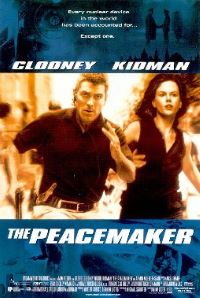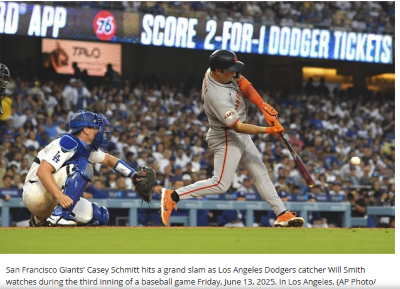
Remember the office water cooler? The office water cooler holds a special place in American lore. It is the place where people who work together in person (remember that?) gather together to share stories, news, and gossip. The sharing may be about a TV show from the night before, a sports or news event, or even be work-related. Regardless, these informal gatherings around the water hole help provide the social glue that keeps disparate people together in a single, shared community. This was before everyone brought their own water and drank it by themselves!
Another place of informal gathering was the office photocopier. It does not get as much attention as the office cooler, but it can be very important.
CORONAVIRUS VACCINE
Once upon a time, there were two people at the University of Pennsylvania who worked in the same complex but did not know each other. The first one to work there was Katalin Kariko who had an idea that messengers RNA (mRNA) could turn the human body into a World War II factory powerhouse targeting diseases if handled properly. For years she had striven to no avail to make that vision a reality. Eventually she was demoted and she moved to the neurosurgery department.
Drew Weissman joined Penn in 1997 as an immunologist and physician. His focus was on vaccines against HIV among other diseases. Then, by fate, the two of them met. The location was, yes, the office copying machine. Back then, journals were not online. Therefore if one wanted one’s own copy of a particular article, one had to take the journal out of the library or from the department library if it maintained its own subscription for scientific journals. Drew and Katalin photocopied articles from these journals at the department office copying machine. There they began informal discussions about their respective work in vaccines. The rest as they say is history.
The two of them initiated a rather long process that ended up creating the vaccines that literally are life savers today. Now they receive all sorts of honors and recognition except from people who think the vaccines were an overnight success and rushed into production. These two people spent many years developing the vaccine. What took time was for the rest of the scientific community to catch up and understand what they had done.
Remember, for want of a nail, the kingdom was lost. Now suppose journals were online and could be accessed from one’s own desk be it at home or at work. Would they have met? Would the vaccine based on their work have been created?
ONLINE JOURNALS
The issue of online journals was the subject of the editor’s column in March 2021 issue of The American Historical Review. The title is “From the Editor’s Desk: The Times They Are a-Changin’” by Alex Lichtenstein. He wrote:
Long ago, perhaps in graduate school, you may have cultivated the habit of browsing the periodical room in your research library, scouring the table of contents of the most recent issue of your favorite journals for interesting articles, and then even trotting over to the lumbering photocopier with a pocketful of dimes.
His specific audience is historians, but the comment applies to anyone who has conducted research at a library. You needed coins, then dollar bills, or finally a card one could purchase in varying amounts. Then you would commence photocopying, page by page.
The initial change of major proportions was when these journals became available online. Now you did not need coins, bills, or a card. You did not even need to be in the library.
But Lichtenstein is imaging an even more radical future for academic journals. He is imagining a time when scholarly periodicals whether printed or digital will become extinct. Instead, articles will be available online as they are approved in the peer review process with their being no production schedule. Why have editors package articles in a journal according to a production schedule with all the headaches meeting deadlines entails?
Lichtenstein acknowledges that his personal preference is for the bundling of articles in a periodic journal. However he acknowledges that many (younger) historians are more receptive to the idea of entirely untethered articles from the organizing principle of a periodical scholarly journal. In this scenario, articles would appear randomly based on no time schedule and not connected to any other article except perhaps for special online issues.
As a result the two people most responsible for the development of the coronavirus vaccine never would have met except at the annual Christmas party which would have had to be cancelled due to the virus anyway. What are the advantages of isolating both people and scholarship if and when we return to normal? What will the new normal be?
EXTRACTION VERSUS READING
Extracting information has its place. We extract information about plane schedules, movie times, driving directions, sports scores, stock prices… But what about news and scholarship?
I receive two daily newspapers and one weekly local paper. I do not read everything in them but I do turn the pages one-by-one. This should be obvious from some of my blogs especially when the unexpected juxtaposition of two articles catches my eye. I wrote about this just over nine years ago in Saving Cities: Learning from Melanie Griffith
One of my favorite movie scenes is from Working Girl when Melanie Griffith explains while riding up the elevator with Trask and Indiana, how she came up with the idea for the corporate merger. It wasn’t as if she had been thinking about anything even remotely related to it. Her insight derived from a chance juxtaposition perceived by a mind willing to learn and open to new possibilities.
She was reading a newspaper, thumbing through the pages when she chanced upon the notice about a radio DJ looking for a new home followed on the next page with a society notice about the wedding of the daughter of a media mogul. Voila, a eureka moment. That’s how thinking works. By contrast Sigourney Weaver was at a loss for words when posed the question on how she had had the idea which she had stolen. Thinking works in unexpected ways but two keys are a willingness to learn something new and the opportunity to do so through the presentation of new information and/or experiences (like a field trip).
True, this movie is fictional but it does express a way in which original thinking actually occurs.
Take for example, the very journal which Lichtenstein edits. The issue is over 450 pages long with many of the pages double-columned and in small print. No, I do not read the entire issue which I receive as hard copy. But I do go through it. Usually some articles and/or book reviews catch my eye that I would not have read if I were simply looking at an online table of contents. Now imagine there is no table of contents because all articles are individual. I suspect we all are familiar with the term “silo” and are aware of its dangers. On our own, it is very easy to dig deep into our rut and remain trapped by our paradigms. In my opinion, national organizations should work to counter that tendency, not to accelerate it.
ZOOM OR IN PERSON?
Another water cooler or office copier setting is the conference or even a lecture. They provide opportunities for informal exchanges. For example, at a conference, I will peruse the book vendors. The eye glancing at a booth is quicker than the eye scrolling through an online list or catalog on a small screen. Plus you are moving about and not sitting still when engaging the available books. I suggest you are more likely to encounter an unexpected book in person then on a screen.
Then, of course, there are the personal exchanges. The people you may not have seen since the last conference. The new colleague they may introduce to you. The chance to chat about the session you just attended or talk you just heard even with a stranger who must share a similar interest because you are there in the same room and listened to the same talk. People chat before and after the session, over the reception if one or at a meal.
Keep in mind that many people attending talks and conferences may be academically isolated during the year. They may work for a small museum or historical society with little opportunity to meet with colleagues in similar venues to talk shop, commiserate, and learn. Similarly for academics who may the only one teaching a particular subject at a small college or university. I am not bad-mouthing the benefits of online programs even when we return to normal. I have been able to attend conferences and hear talks that would have been inaccessible, time-consuming, and costly to attend in person. Particularly, in the winter (even with global warming) there is a lot to be said for not having to go for a lecture or to take a late train back from Manhattan because there is the convenience of attending from home.
On the other hand, the vaccine never would have been invented or you never would have had the chance to follow-up immediately with the speaker about some idea that just popped into your head.
So my New Year’s resolution, let’s take advantage of the possibilities through online and virtual but not at the expense of the human need for personal connections and the benefits of chance and the unexpected preventing us from being limited to our ruts, silos, and paradigms.






This was great, Peter. Thank you, Lola
The most recent post shared entitled “if journals were online, there would be no [covid] vaccine” was so out of touch and completely ignored the needs of academics from marginalized backgrounds that I felt compelled to unsubscribe. Some other posts before
Sorry to see you go. You have been a dedicated reader and will be missed. I am not sure what you mean by your comments. In general, academics, meaning graduates from college and probably grad school have access to online journals through the school where they teach or as alumni. It seems like you were about to make a critical comment against me before you ran out of space. If you reply in the comment section you will have ample space to voice to concerns for my blogs.
I found the piece about online journals to be uninformed about the function and intellectual frameworks involved in digital publishing (hint: it’s not extractive), nostalgic for format over function, and really quite retrograde in its aims. Also, ahistori
I use online journals all time. They are terrific. I extract articles from newspapers but I do read them cover to cover when they are delivered at home. I am not quite sure what your point is and realize that you ran out of space. If you use the comment section you will have ample space to more fully explain your concerns. I look forward to reading it. Peter
Peter, thanks for this (which I just came across). Like you, I certainly see and embrace the advantages of digital access to information. That said, as you recognize, we are not paying enough attention to what is lost. Not sure why that observation generate so much hostility. Moreover, I am not even convinced that digital scholarship provides more universal access to the “marginalized”, who also once had access to university reading rooms and may not have access to digital materials.
Alex, thank you for writing. As a member of the AHA [which I need to renew by March 1], I am familiar with your name. I have written some blogs about the organization and AHR. While my blogs go to the AHA staff, you are not on my distribution list. I am pleased that someone forwarded the blog to you or however you happened to see it.
Peter